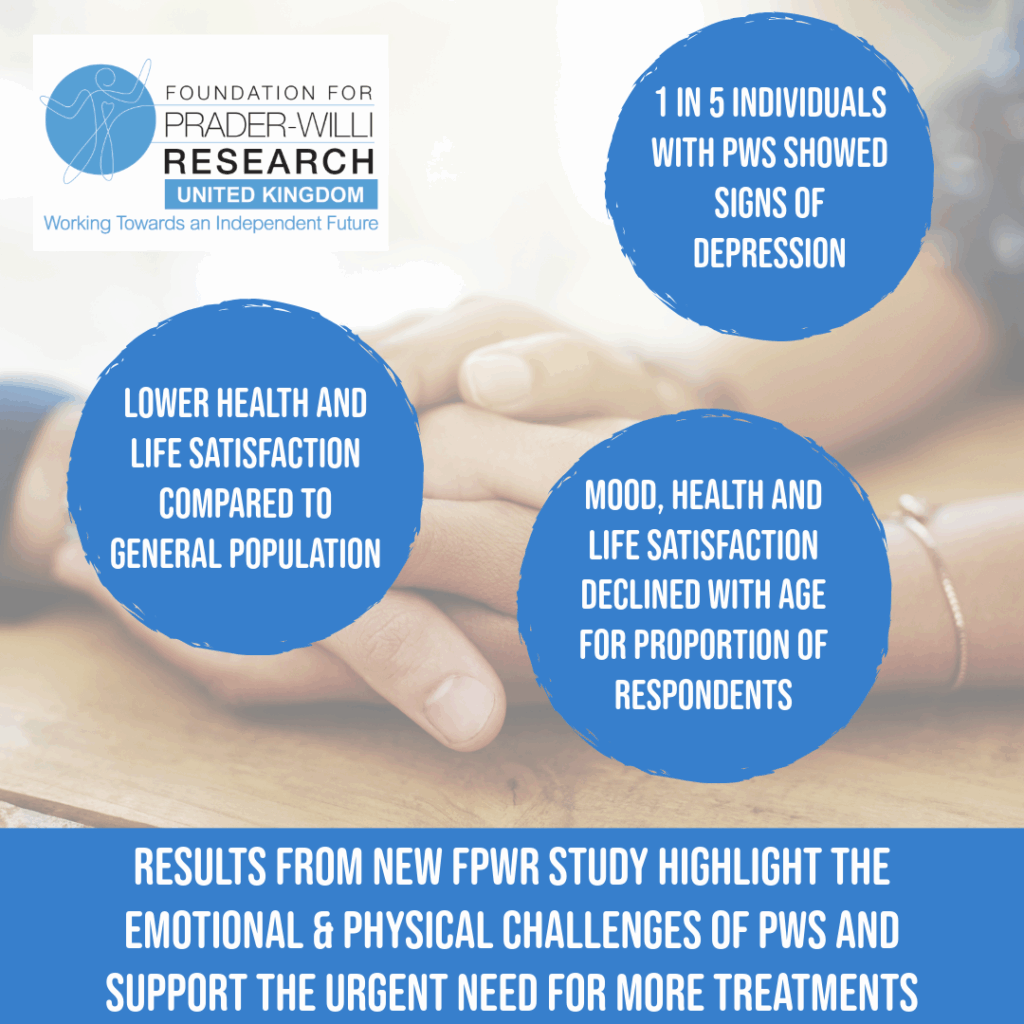
To better understand how Prader-Willi Syndrome (PWS) affects mood, health, and happiness, over 500 parents from the Global PWS Registry participated in a special study. They answered three key surveys designed to measure depression and quality of life in individuals with PWS:
- Glasgow Depression Scale – Carer Supplement Version – A trusted tool that helps identify signs of depression in people with learning disabilities, including PWS.
- PROMIS General Health Survey – Measures physical and mental health, providing insight into overall well-being.
- PROMIS Life Satisfaction Survey – Evaluates happiness and life satisfaction, helping researchers understand emotional well-being in PWS.
Key Findings
- 1 in 5 individuals with PWS showed signs of possible depression, based on caregiver responses.
- On average, people with PWS scored lower on health and life satisfaction surveys compared to the general population.
- Mood, health, and life satisfaction tended to decline with age, though some individuals reported high scores at every stage of life.
- Caregivers who had previously reported depression in their loved one also reported lower health and life satisfaction scores, confirming that these tools accurately reflect real-life experiences.
Why This Matters
This study is important from a scientific standpoint, demonstrating how these questionnaires can effectively assess the mental health of individuals with PWS—especially those who may struggle to express their own needs to medical professionals.
On a patient level, while it is difficult to see the data reflect a decline in life satisfaction as individuals with PWS age, this study serves as crucial evidence highlighting the urgent need for more treatments and specialised care.
With promising drugs currently in clinical trials, research like this reinforces the need to look beyond individual symptoms—such as hyperphagia—and focus on broader aspects of well-being, including independence and quality of life.
Additionally, this study showcases the immense value of the Global PWS Registry in collecting data that drives meaningful change. While the results may feel discouraging, they are also a powerful call to action, ensuring that individuals with PWS receive the care, support, and life-improving treatments they deserve.
To read more about the study please visit Life Satisfaction, Global Health, and Mood in PWS: What a New Study Reveals